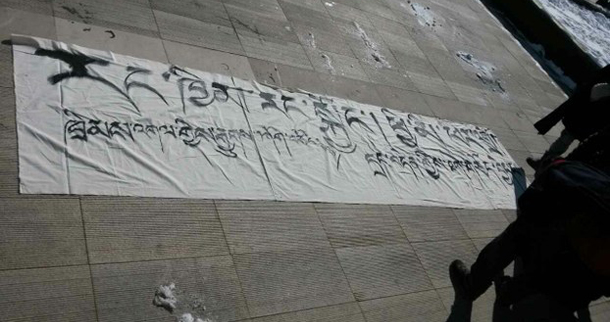Tibetan students and their families have taken to the streets in protest over the supposed mishandling of Government employer exams back in October. These exams, which are used in assigning government jobs to students recently out of school, were apparently sold off by Chinese officials to families who wanted higher scores for their children. The lower grades were then assigned to the Tibetan students.
For the past two weeks, in the Gansu province in Tibet, the protesters have been holding rallies in front of the offices in the prefecture’s Luchu county, but they have seen no action from the county government. In the lead up to the protests, on January 7, students and their parents had arranged a meeting with the county governor, but according to a source on the ground the families waited all day but “no one turned up.”
The source, who requested anonymity, reported that a meeting took place the following day, and that “the governor and other officials pretended to listen to their demands, but no clear decision was made.”
Getting no satisfactory response from the local government, the protesters took to the streets, marching to government offices in Kanlho, several miles away from Gansu. They carried banners that read “self-rule for our area” and “please handle fairly our complaints about this illegal tampering”. Fifteen kilometers from Kanlho, police asked them to turn back. It was only after government officials arrived on the scene and promised to look into the complaints that the protestors turned back to Gansu.
“They said that even if the graduates had received good marks on their exams, these would be no match for the higher grades shown on stolen papers,” the source reported. He went on to say, “They complained that the selling of exam papers and the swapping of graduates’ names on test results has put them at a disadvantage in competing for jobs.”
There have been no further developments and the protesters have vowed to continue their efforts, saying they will bring these complaints to the central government’s attention if need be.






 Print
Print Email
Email